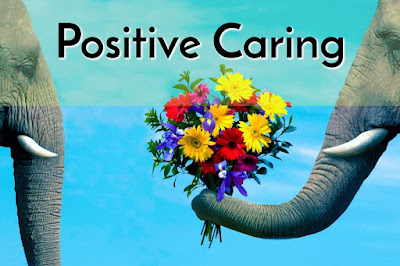Book review: Juggling Elephants
Finally back with a new entry and I am continuing my book reviews from the 2017 reading list I put together. This post is all about Juggling Elephants: An Easier Way to Get Your Most Important Things Done--Now! by Jones Loflin and Todd Musig, which is on the topic of helping you get the important things done now. I actually finished it a while back and am well into the next title on the list, although some personal issues kind of slowed down everything going on in my life.
Juggling Elephants is a "fable" type improvement book. Actually, it is almost a fable within a fable. At the top level and used only superficially at the beginning and the end it tells the story of a father relaying advice to his grown daughter who shows up to meet him for lunch one day. The advice he gives is then the fable he tells her about how he learned to get so much done and to always be on top of the important things in life.
That story starts with a trip to the circus with the same daughter, but when she was very young. In the story, dad is struggling with all areas of his life - work, personal relationships, health. He has a chance encounter with a gentleman in the crowd who turns out to be a ringmaster for another circus.
As the two converse, the dad in the story realizes the ringmaster possesses great wisdom that may help him deal with all the hurdles and issues in his life. This turns out to be doing things like identifying the "three rings" in you life that are most important; identifying each "act" or project/to-do that belongs in each ring; making sure all the "performers" know what to do, have the resources to do it, and time to practice; and learning how to transition between the rings. A good bit of time is spent on the role of deciding which "acts" need to go in a ring and which ones need to be cut - that is, figuring out what is really worth pursuing.
Overall, this struck me as just a reframing of concepts that exist is most other personal improvement works, e.g. Covey's "put first things first". I'm not sure I really picked up any new concepts from the book. Unfortunately, I also found actual details on how to go about doing some of this lacking to non-existent. There is a supporting web site for the book (a popular strategy it seems nowadays) with some tools available to help, but nothing that couldn't be accomplished with simple paper and pen.
I will confess, I am not a fan of fable-type books on improvement topics. So it is quite possible that has colored my review and general "meh" attitude toward Juggling Elephants. If you have not read a lot of titles in the self-improvement/productivity field then it may give you a nice framework to structure some of your thoughts. And if you are a fan of fable type books then you will probably enjoy it. One good thing is it was an easy and quick read.
Juggling Elephants is a "fable" type improvement book. Actually, it is almost a fable within a fable. At the top level and used only superficially at the beginning and the end it tells the story of a father relaying advice to his grown daughter who shows up to meet him for lunch one day. The advice he gives is then the fable he tells her about how he learned to get so much done and to always be on top of the important things in life.
That story starts with a trip to the circus with the same daughter, but when she was very young. In the story, dad is struggling with all areas of his life - work, personal relationships, health. He has a chance encounter with a gentleman in the crowd who turns out to be a ringmaster for another circus.
As the two converse, the dad in the story realizes the ringmaster possesses great wisdom that may help him deal with all the hurdles and issues in his life. This turns out to be doing things like identifying the "three rings" in you life that are most important; identifying each "act" or project/to-do that belongs in each ring; making sure all the "performers" know what to do, have the resources to do it, and time to practice; and learning how to transition between the rings. A good bit of time is spent on the role of deciding which "acts" need to go in a ring and which ones need to be cut - that is, figuring out what is really worth pursuing.
Overall, this struck me as just a reframing of concepts that exist is most other personal improvement works, e.g. Covey's "put first things first". I'm not sure I really picked up any new concepts from the book. Unfortunately, I also found actual details on how to go about doing some of this lacking to non-existent. There is a supporting web site for the book (a popular strategy it seems nowadays) with some tools available to help, but nothing that couldn't be accomplished with simple paper and pen.
I will confess, I am not a fan of fable-type books on improvement topics. So it is quite possible that has colored my review and general "meh" attitude toward Juggling Elephants. If you have not read a lot of titles in the self-improvement/productivity field then it may give you a nice framework to structure some of your thoughts. And if you are a fan of fable type books then you will probably enjoy it. One good thing is it was an easy and quick read.


Comments
Post a Comment